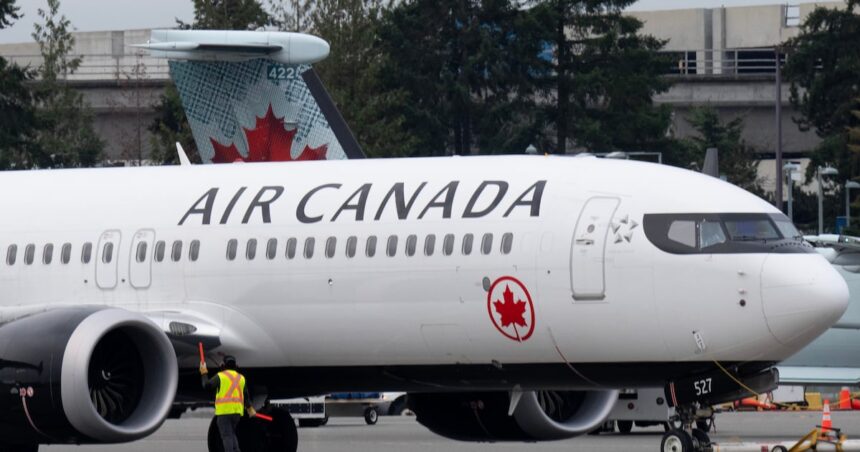Air Canada faces unprecedented operational turbulence as flight attendants overwhelmingly voted to authorize strike action amid stalled contract negotiations. The Canadian Union of Public Employees (CUPE), representing over 8,500 Air Canada cabin crew members, announced Tuesday that 93% of voting members supported potential strike measures, signaling growing tension in Canada’s aviation sector.
“This decisive mandate sends a clear message that flight attendants are united and prepared to take a stand for fair working conditions,” said Wesley Lesosky, president of CUPE’s Air Canada component. “After years of pandemic-related concessions and increasing workloads, our members are demanding meaningful improvements that reflect their critical role in aviation safety.”
The potential labor disruption comes at a particularly challenging time for Canada’s largest airline, which has been working to rebuild operations and passenger confidence following the COVID-19 pandemic. Industry analysts suggest a work stoppage could cost Air Canada millions daily while stranding thousands of travelers during the busy summer travel season.
Key issues in the dispute include wage improvements, scheduling concerns, and work-life balance provisions. Flight attendants have expressed frustration over increasingly demanding schedules coupled with stagnant compensation that hasn’t kept pace with Canada’s rising cost of living.
Air Canada responded to the strike vote with assurances that negotiations will continue. “We remain committed to reaching a fair and competitive agreement with our valued cabin crew members,” the airline stated in a press release. “Discussions are ongoing, and we are focused on achieving a resolution that works for all stakeholders without service disruptions.”
The airline has initiated contingency planning, though specific details remain undisclosed. Industry observers note that even without an immediate walkout, the strike authorization itself may impact consumer confidence and booking patterns.
The federal government is monitoring the situation closely. Federal Labour Minister Steven MacKinnon urged both parties to continue bargaining in good faith. “The best agreements are those reached at the table,” MacKinnon stated. “We encourage both parties to work toward a resolution that prevents disruption to Canadian travelers and the broader economy.”
CUPE has indicated that while strike action is now authorized, they hope to avoid service disruptions. A 72-hour strike notice would be required before any job action could begin, providing a window for intensified negotiations.
Travel experts advise passengers with upcoming Air Canada bookings to review cancellation policies and consider travel insurance options that specifically cover labor disruptions. “While we hope for a resolution, travelers should understand their rights and options,” noted Gabor Lukacs, founder of Air Passenger Rights.
As negotiations enter this critical phase, the outcome will have significant implications not only for Air Canada and its employees but for Canada’s entire aviation sector as it continues post-pandemic recovery. What remains to be seen is whether this labor dispute will spark broader conversations about working conditions across an industry still grappling with staffing challenges and operational pressures in the wake of unprecedented disruption.


















